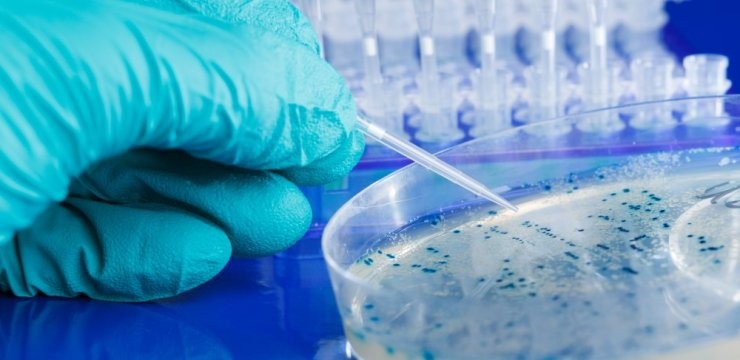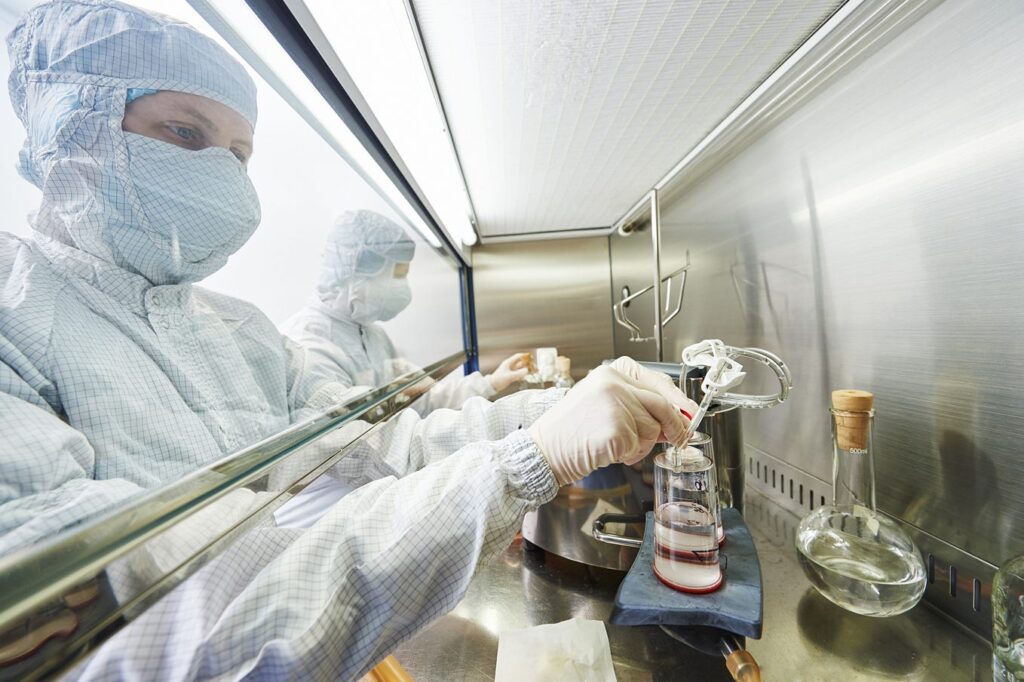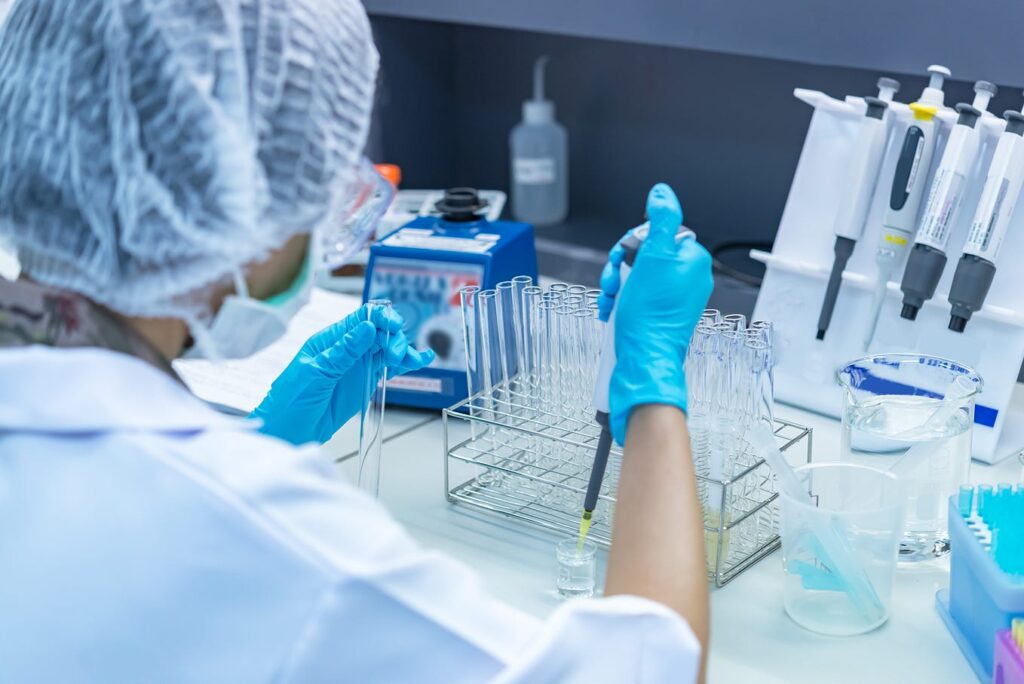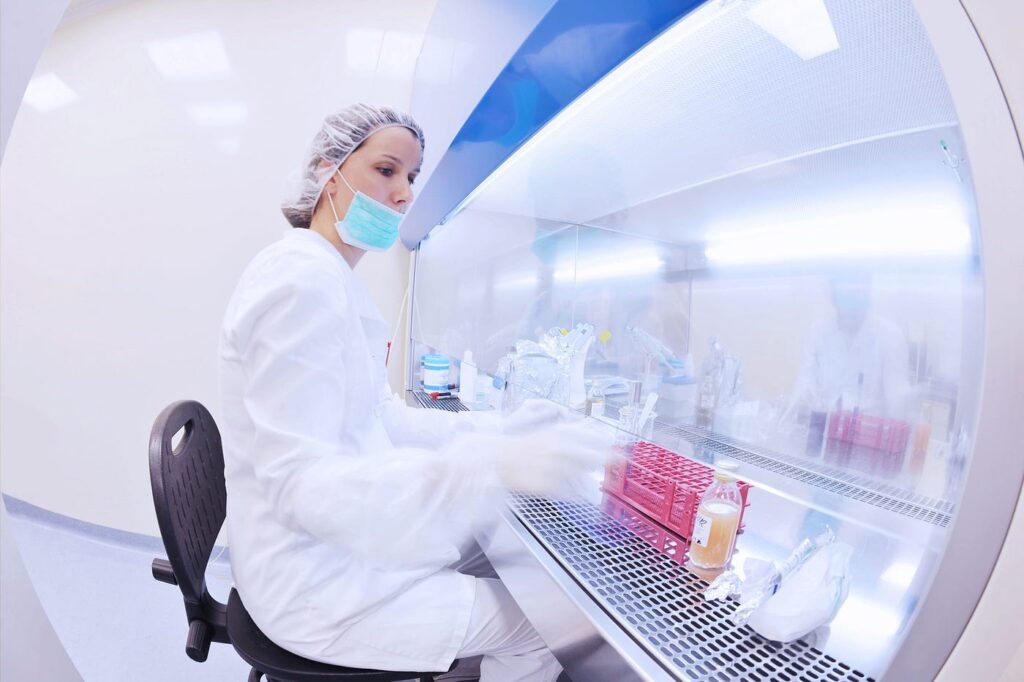Microbiology is integral to pharmacy, ensuring the safety and efficacy of pharmaceutical products through quality control measures. It plays a pivotal role in drug development, aiding in the design of antimicrobial medications. Microbiological techniques are crucial for establishing sterilization processes, essential for preventing infections in patients.
Understanding microbial interactions informs pharmacokinetics and pharmacodynamics, optimizing drug dosages. In biopharmaceutical production, microbiology is fundamental, utilizing microbial systems for expression hosts. Pharmacists rely on microbiology to select effective antibiotics and manage infectious diseases, contributing to infection control.
Microbiology-driven research is vital for developing new antibiotics and combating emerging infectious threats. Pharmacists educate patients on antibiotic usage, leveraging microbiological knowledge to promote adherence and patient safety. In essence, microbiology’s multifaceted contributions are indispensable in ensuring pharmaceutical quality, efficacy, and patient well-being.
How does microbiology contribute to quality control in pharmacy?

Microbiology plays a crucial role in quality control within pharmacy settings by ensuring the safety and efficacy of pharmaceutical products. Here’s how microbiology contributes:
Sterility Testing
Microbiological techniques are used to ensure that pharmaceutical products, particularly injectables, ophthalmic solutions, and other sterile dosage forms, are free from harmful microorganisms.
Sterility testing verifies that these products are devoid of any viable microbial contaminants that could cause infections in patients.
Environmental Monitoring
Microbiological monitoring of the manufacturing environment helps to identify and control potential sources of contamination. Regular monitoring of air, surfaces, water, and personnel within the pharmaceutical facility helps prevent the introduction of microbial contaminants into the production process.
Microbial Limits Testing
Pharmaceutical products must meet specified microbial limits to ensure their safety. Microbial limits testing involves assessing the levels of microbial contamination in non-sterile pharmaceutical products such as oral solids, liquids, and topical formulations. This ensures that these products do not contain an excessive amount of harmful microorganisms.
Antimicrobial Effectiveness Testing
Microbiological assays are used to evaluate the effectiveness of antimicrobial preservatives in multi-dose pharmaceutical formulations.
These tests assess the ability of preservatives to inhibit the growth of microorganisms and prevent product spoilage during storage.
Identification of Microbial Contaminants
In case of contamination, microbiological techniques are employed to identify the types of microorganisms present in pharmaceutical products or manufacturing environments.
This information helps in determining the source of contamination and implementing appropriate corrective actions to prevent recurrence.
Validation of Sterilization Processes
Microbiological validation is essential for ensuring the effectiveness of sterilization processes such as autoclaving, irradiation, and filtration. These processes must be validated to demonstrate their ability to eliminate or inactivate microbial contaminants without compromising the quality of the pharmaceutical product.
What role does microbiology play in drug development?

Microbiology is integral to various stages of drug development, ensuring the safety, efficacy, and quality of pharmaceutical products. Here’s how microbiology contributes throughout the drug development process:
Discovery and Preclinical Research
Microbiology is essential in the discovery of new antibiotics. Researchers use microbiological techniques to identify and characterize new antimicrobial compounds from natural sources or through synthetic methods.
Microbiologists screen potential drug candidates for their activity against various pathogens. This involves testing the compounds against bacterial, fungal, viral, and parasitic cultures to assess their efficacy.
Microbiological studies help elucidate the mechanisms through which new drugs exert their effects on microorganisms. Understanding how a drug works at the microbial level can guide further development and optimization.
Formulation Development
During formulation, microbiologists test the efficacy of preservatives used in multi-dose products to ensure they can prevent microbial growth during storage and use.
Microbiology is involved in assessing the compatibility of new drug formulations with packaging materials and other components to prevent microbial contamination.
Clinical Trials
Throughout clinical trials, microbiological testing ensures that the investigational drug products are free from microbial contamination. This includes sterility testing for injectable products and microbial limits testing for non-sterile products.
Microbiological assays are used to study how drugs interact with pathogens in the body, including their absorption, distribution, metabolism, and excretion (pharmacokinetics) and their effects on microorganisms (pharmacodynamics).
How is microbiology involved in pharmaceutical sterilization processes?

Microbiology plays a critical role in pharmaceutical sterilization processes, ensuring that products are free from harmful microorganisms. The selection of appropriate sterilization methods begins with microbiologists assessing the initial microbial load on raw materials, equipment, and packaging components. This assessment, alongside the identification of the types of microorganisms present, helps in choosing the most effective sterilization method, such as heat, steam, radiation, or filtration.
Validation of sterilization processes is a key responsibility of microbiologists. They use biological indicators containing highly resistant microorganisms to validate sterilization cycles, confirming effectiveness when no growth is observed post-treatment. Additionally, microbiologists develop and optimize sterilization cycles, such as autoclave protocols, to ensure comprehensive microbial eradication without compromising product integrity.
Routine monitoring and testing are integral to maintaining sterility. Sterility testing on finished products confirms the absence of viable microorganisms, which is crucial for sterile products like injectables. Environmental monitoring of air, surfaces, water, and personnel is conducted regularly to detect and control potential microbial contamination, thereby maintaining aseptic manufacturing conditions.
Microbiologists also play a pivotal role in filter integrity testing, especially for products that cannot withstand heat sterilization. Membrane filters are validated and routinely tested for integrity, often using bacterial challenge tests to ensure their efficacy in removing microorganisms during product filtration. Alongside biological indicators, chemical indicators are used to provide immediate visual confirmation of successful sterilization.
In product testing and quality assurance, microbiologists perform endotoxin testing to detect pyrogens, particularly from Gram-negative bacteria, which can be harmful even in sterile products. Stability studies are conducted to ensure that sterilized products remain sterile throughout their shelf life, involving periodic sterility testing and environmental monitoring.
Documentation and compliance with regulatory requirements are crucial. Microbiologists ensure that all sterilization processes meet standards set by regulatory bodies such as the FDA and EMA, maintaining thorough documentation of validation and monitoring activities. They also develop and implement standard operating procedures (SOPs) for all sterilization and microbiological testing processes to ensure consistency, reliability, and compliance.
Final Words
Microbiology is essential in the field of pharmacy, touching various critical aspects. It ensures the safety and quality of pharmaceutical products through rigorous quality control. Microbiology plays a key role in developing effective drugs, establishing reliable sterilization processes, and understanding how drugs interact with the body. Additionally, it is vital in producing biopharmaceuticals and managing infections, helping pharmacists select the best treatments. Research in microbiology leads to new antibiotics and better infection control. Finally, it helps pharmacists educate patients on proper medication use. Overall, microbiology’s contributions are fundamental to maintaining high standards and ensuring patient safety in pharmacy.
